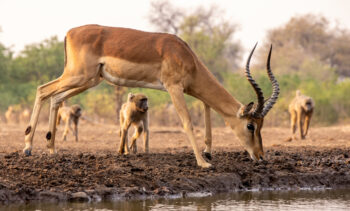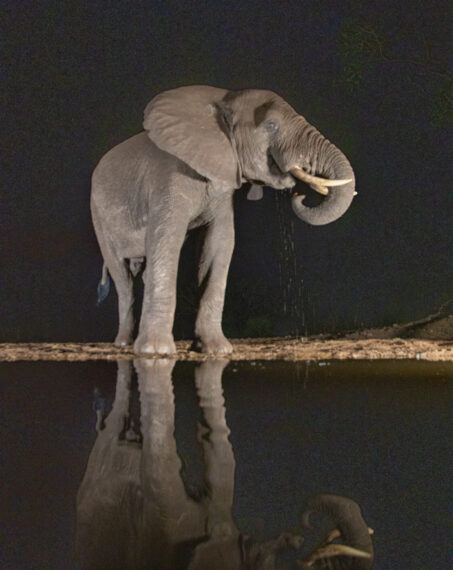
The two largest land animals in the world are the elephant and hippopotamus. They are also two of animals on most safari participants’ check list.
We had many elephant encounters, ranging from almost touchable from our vehicle and hide
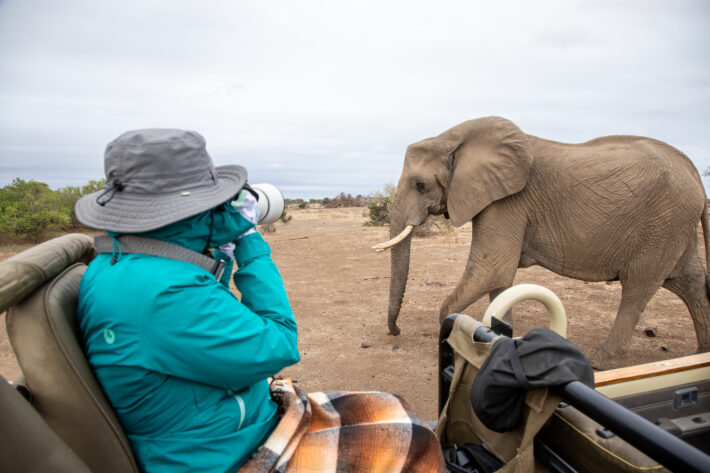
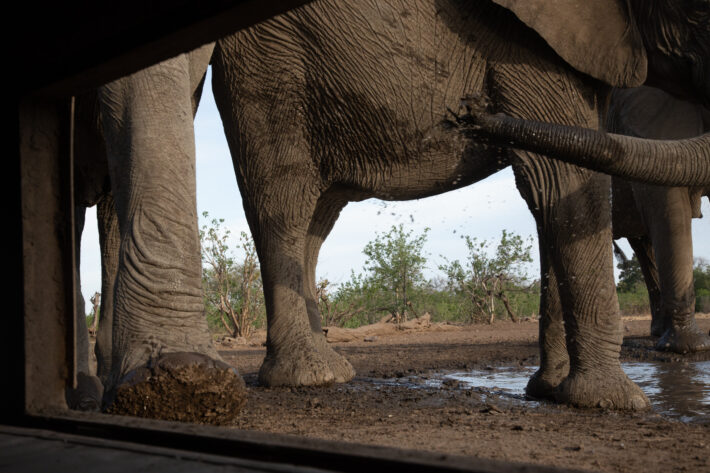
to more reasonable distances.
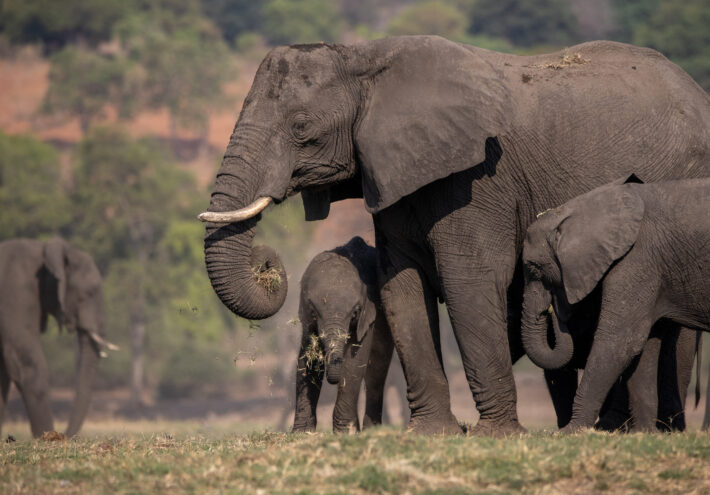
Their night visits were spectacular
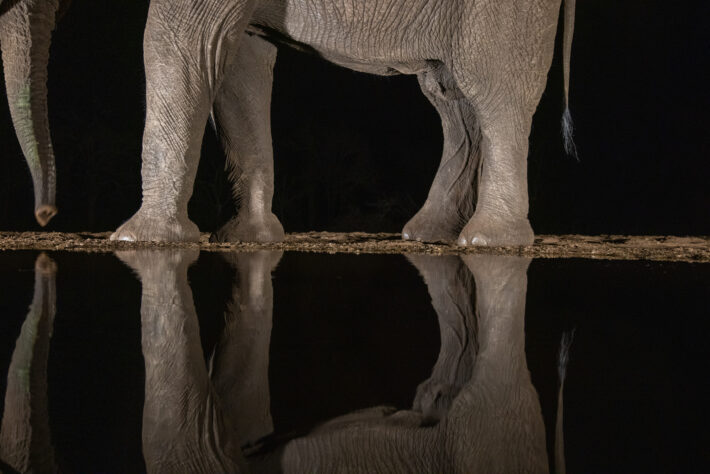
A focus our trip was to photograph out of hides, with our cameras at water level. When the elephants showed up that made for interesting perspective. It is quite a view to look up 10 feet to elephants tusks.
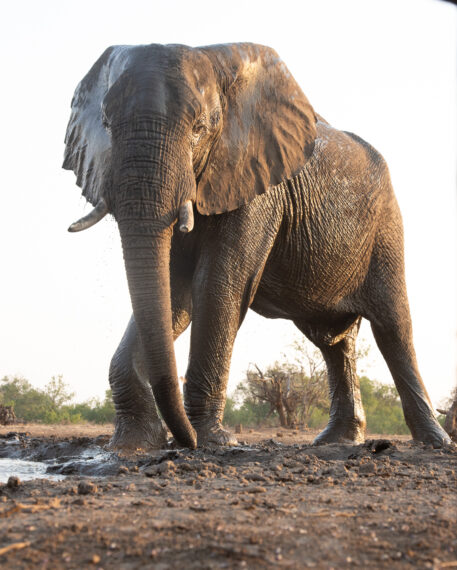
As it was hot for most of the trip, we saw the elephants spending a lot of time around water
Yawns are a signature move of the hippo, and it’s either a relaxation movement or a territorial gesture that warns you not to come any closer to its massive canine teeth.
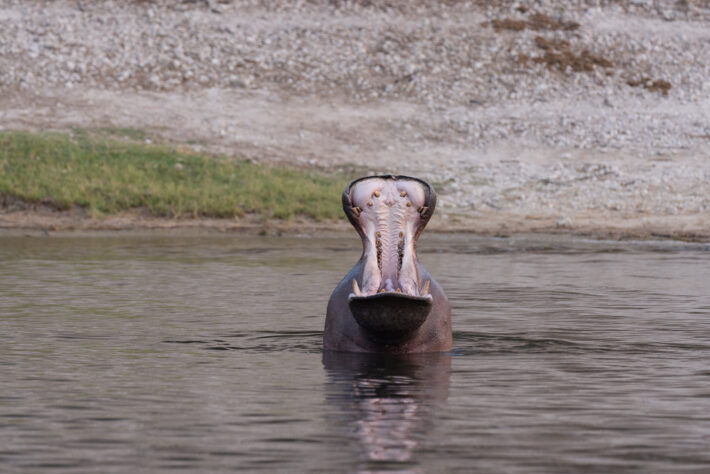
Hippo’s are very territorial, especially during the day when they are keeping cool in the water. You don’t invade their territory without a response. Here is a mom telling an invader to back off from the sandbar where her child is.

and this what happens if they don’t.
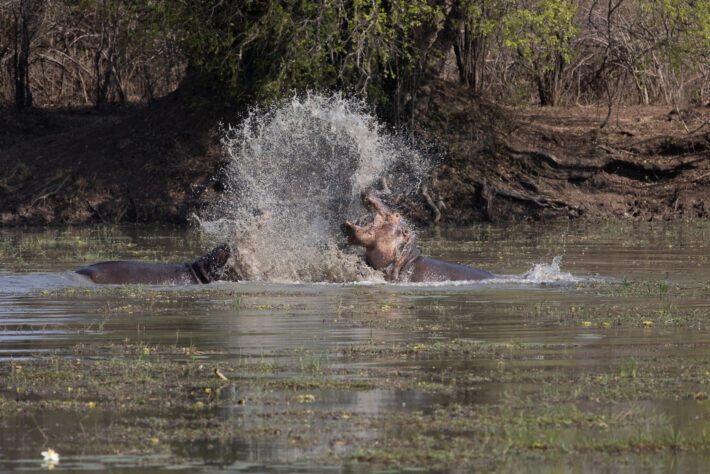
Most of the time hippos are in the water, and all you see of them is part of their face.
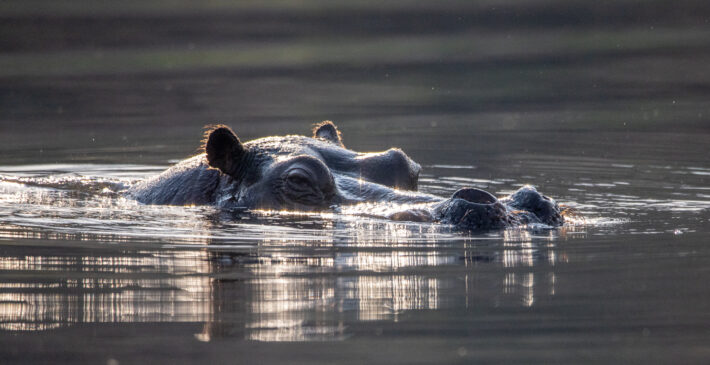
So it is quite a treat (and a little scary) to round a corner at night and see them in your headlights on the road. You also realize that they are not very good looking
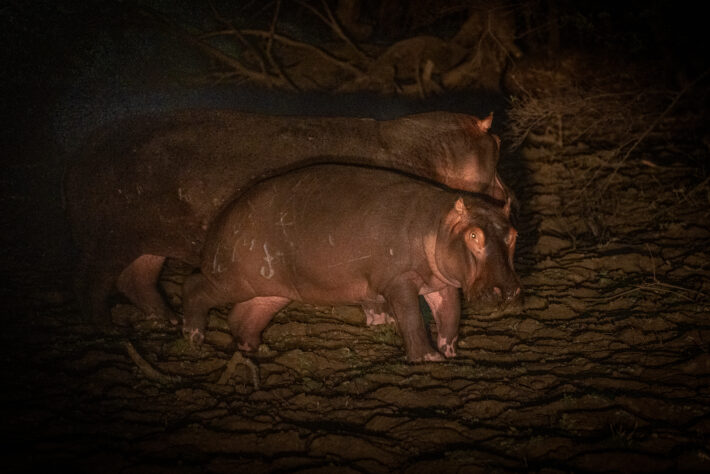
Even scarer is when they pop out of the water and charge your boat
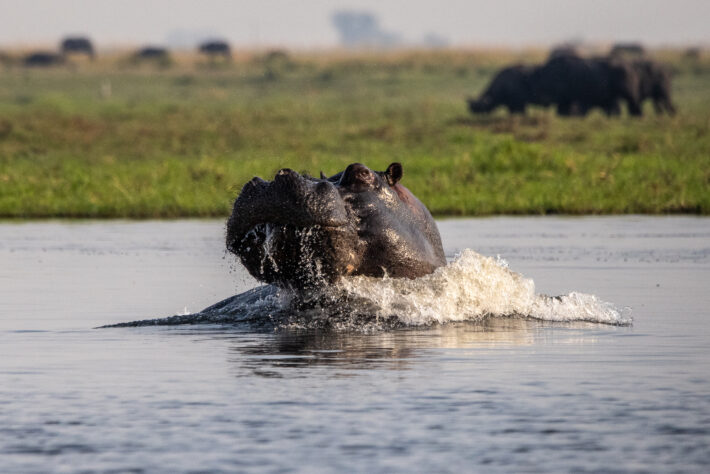
As mentioned, it was hot on our trip. The hippos cooled off in the water while the elephants often just slept.
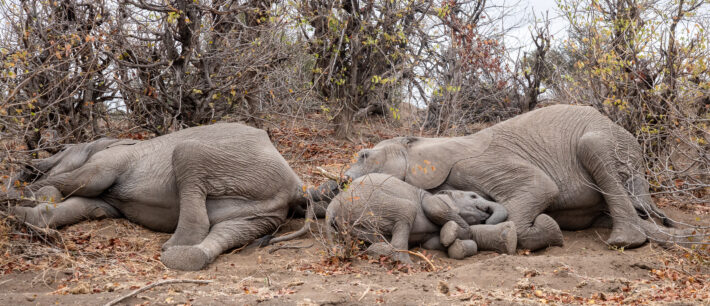
And this dead to the world family is sleeping and vey much alive.
With a trip of over a month and staying a 5 camps, I felt it was too much to put into one report. While each camp had its unique vibe and mix of animals, we saw many animals in multiple camps. So instead of organizing the rest of my report by camp, it is organized by type of wildlife. The links for these reports are below:
Return to Africa https://www.wherearetheynow.today/return-to-africa/
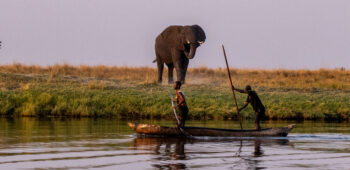
Big Cats https://www.wherearetheynow.today/big-cats/
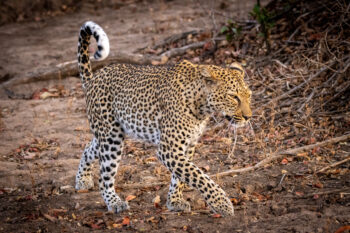
African Birds https://www.wherearetheynow.today/african-birds/
)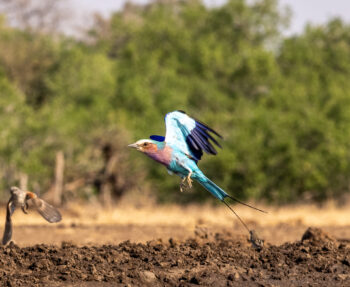
Other wildlife https://www.wherearetheynow.today/more-wildlife/
